Heading into '24: Boston Residents Changing Priorities
Using Boston mayoral election polls from 2013, 2017, & 2021 to track changing sentiment as we head into 2024
As 2023 comes to a close Boston Policy Institute, Inc (BPI) wanted to understand how Boston residents’ sentiments had changed over time. To do that, BPI commissioned Massachusetts-based public affairs expert Nick Clemons to review public opinion polls conducted for Boston mayoral elections between 2013 and 2021. Here is his review & analysis:
The goal was to examine trends over the course of the past ten years in order to draw some conclusions on how residents’ priorities have evolved and how their perspectives on these issues have changed.
The polls reviewed for this memo were conducted in mayoral election years and most often were conducted just prior to election day (horse-race only polls were not included). There was a dearth of polling in 2017 due to the non-competitive nature of the mayor’s race that year. These polls were conducted by a variety of organizations therefore the methodology, the phrasing of questions (for example, some polls ask right track/wrong track while others do not), and margin of error varies from poll to poll. This means that comparing the results of one poll to another is not apples-to-apples. Nevertheless, these polls did provide a great deal of insight into how the attitudes of residents have shift in the past decade, both in terms of their priorities and how to tackle challenges faced by Boston.
Here are the 7 key takeaways from this review:
The 2021 mayoral election unquestionably was a change election, with Boston electing the first female and the first person of color mayor while also electing a diverse city council.
This is best captured in one poll (Suffolk University 10/19/21) where 48% of respondents favored thoughtful incremental change vs 36% who wanted bold, transformational change. Another 10% wanted to maintain the status quo. This shows Boston is a city open to change, but not radical change that alters the landscape overnight.

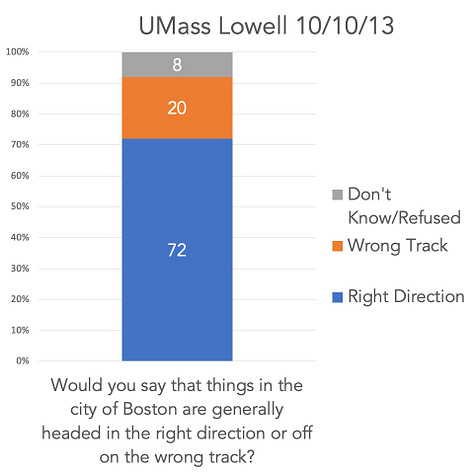
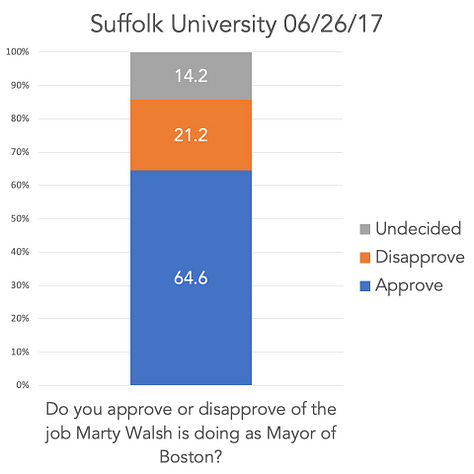
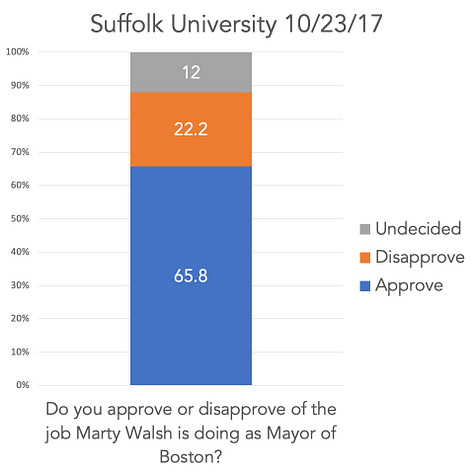

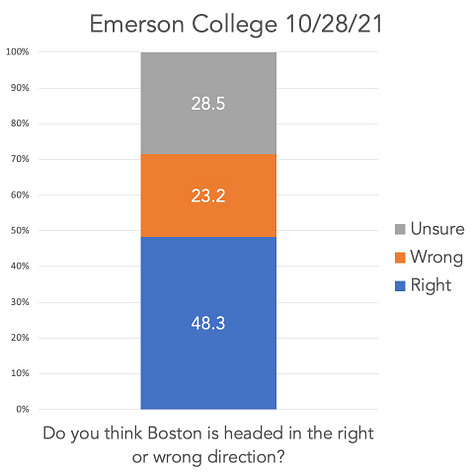
These polls were conducted by a variety of organizations therefore the methodology, the phrasing of questions (for example, some polls ask right track/wrong track while others do not), and margin of error varies from poll to poll. This means that comparing the results of one poll to another is not apples-to-apples. Over the course of ten years residents’ belief that Boston is moving in the right direction has diminished from a high-water mark of 72% in 2013 (UMass Lowell 10/10/13) to a low of 48% in 2019 (Emerson College 10/28/21)
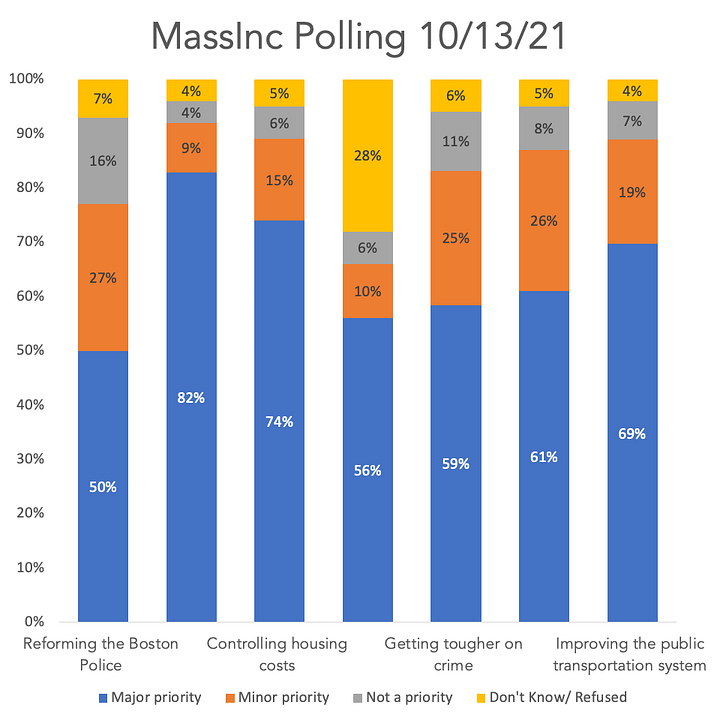

Respondents during the 2021 mayoral race told pollsters how they wanted the next Mayor to prioritize the issues facing Boston. 

Respondents during the 2013 mayoral race told pollsters that these were the biggest problems facing Boston. Education has consistently been a top two issue in each poll from 2013 through 2021. The persistence of education as a major issue demonstrates that residents believe Boston must do more to improve outcomes.
Housing was the top issue in 2021 (Suffolk University, 10/19/21; MassInc Polling, 10/13/21) and was the 3rd most important issue to residents in 2017 (Suffolk University, 10/23/17) but was not on the radar as an issue in 2013 (only 5% respondents listed it as a top issue in MassInc Polling 9/17/13 poll) and was not even mentioned in other polls conducted that year by UMass Lowell and Suffolk University.
Crime has ebbed and flowed as an issue but has consistently been a top 5 issue for residents.
The issue of police reform was a key talking point for candidates and media, but it never rose to the same level with residents (Suffolk University 10/19/21; MassInc. 10/13/21). In the Suffolk Poll, 56% of respondents said to divert some money to mental health, but maintain a robust police force, with 26% saying Boston should actually increase the police budget while only 10% called for de-funding the police. In the MassInc Poll, 59% of respondents agreed that the City had to get tougher on crime and 50% of respondents acknowledging that some police reform was needed.
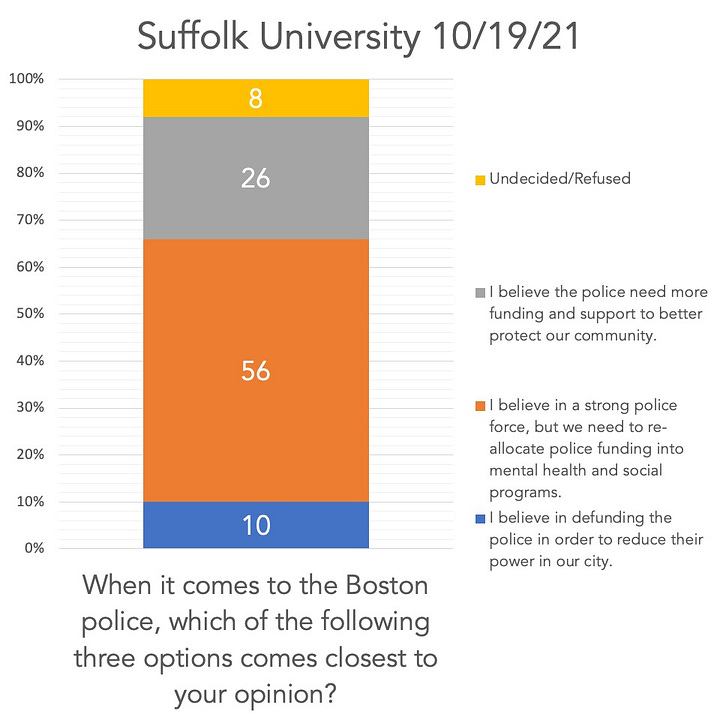

Comparing the results from the Suffolk University & MassInc polls that asked respondents about police reform & public safety.
A word of caution — polls are only a snapshot in time. However, this review demonstrates that some issues are persistent (for example, education) while others are relatively new (for example, housing). It further demonstrates that over the last decade more and more residents believe Boston is moving in the wrong direction.
The polls used were:





